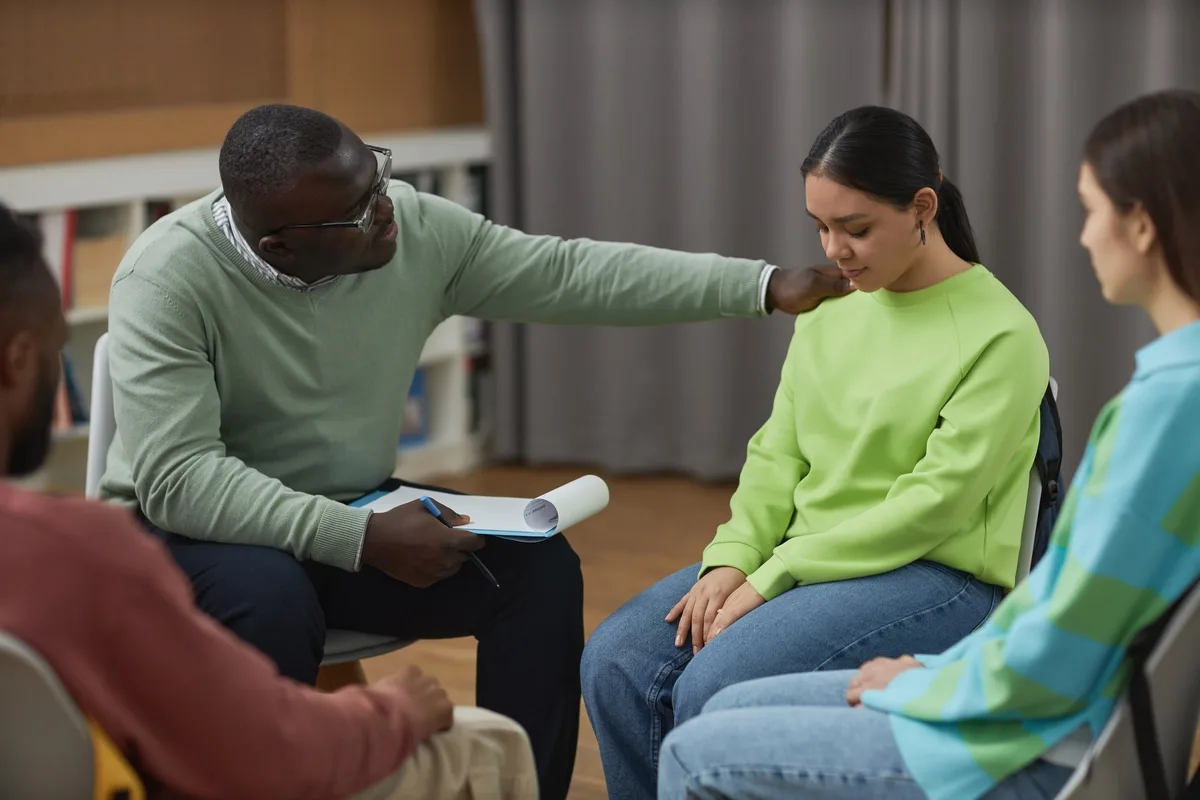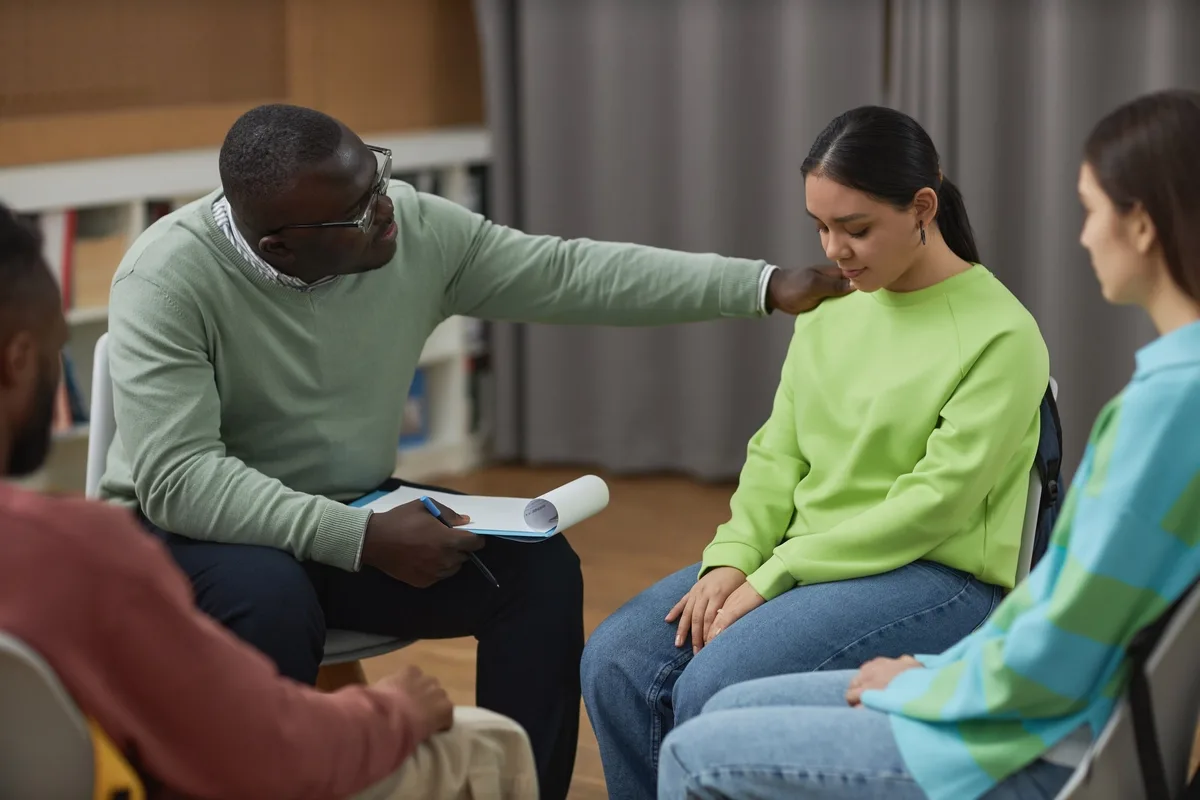24/7 Helpline:
(866) 899-111424/7 Helpline:
(866) 899-1114
Learn more about PTSD Treatment centers in Torrance
PTSD Treatment in Other Cities

Other Insurance Options

American Behavioral

Access to Recovery (ATR) Voucher

Choice Care Network

Ambetter

Medical Mutual of Ohio

Health Net

AllWell

UMR

Covered California

Group Health Incorporated

BHS | Behavioral Health Systems

Optum

Amerigroup

Molina Healthcare

Private insurance

Carleon

Anthem

Cigna

ComPsych

Horizon Healthcare Service

Thelma McMillen Center
Thelma McMillen Center is an outpatient treatment center that serves adults and teens who are strugg...

BHS – NCADD South Bay
Behavioral Health Services - NCADD South Bay is a behavioral healthcare and addiction treatment prov...

Star View Community Services
Star View Community Services is a private rehab located in Torrance, California. Star View Community...

South Bay Drug Abuse Coalition
South Bay Drug Abuse Coalition Center is a private rehab located in Torrance, CA. South Bay Drug Abu...

New Healing Journeys Marriage and Family Therapy
New Healing Journeys Marriage and Family Therapy provides counseling services to individuals who may...

South Bay Sober Living – Torrance House
South Bay Sober Living - Torrance House offers affordable and safe aftercare for individuals in need...




















Options for Recovery
Options for Recovery is a non-profit rehab located in Torrance, California. Options for Recovery spe...

Upfront Recovery Luxury Drug Rehabs of Los Angeles
Upfront Recovery Luxury Drug Rehabs of Los Angeles is a private rehab located in Torrance, Californi...

AA – Alcoholics Anonymous – All South Bay
AA – Alcoholics Anonymous – All South Bay is a non-profit rehab located in Torrance, California. AA ...

Progress House
Progress House is a private rehab located in Torrance, California. Progress House specializes in the...

Twin Town Treatment Centers
Twin Town Treatment Centers - Torrance offers outpatient treatment for individuals with alcohol and/...

Torrance – Lomita Alano Club
Torrance – Lomita Alano Club is a non-profit rehab located in Torrance, California. Torrance – Lomit...

Center For Discovery Torrance
Center For Discovery Torrance is a private rehab located in Torrance, California. Center For Discove...












